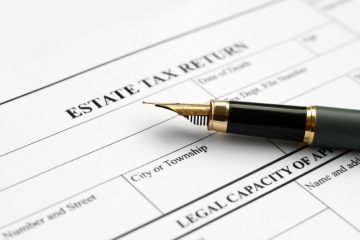Private landlords that are facing losses due to the Government’s plans to cut tax relief on buy-to-let properties could protect their income by making their letting activity a business, experts say.
Chancellor George Osborne announced that tax relief that landlords in the top tax brackets receive on their mortgage interest payments are being reduced from 45% to 20% by April 2020.
He stated in the Budget that this was to “level the playing field” as it is “unfair” that landlords receive this benefit but owner-occupiers do not.1

How Landlords Can Avoid Huge New Tax Bills
Accountants PwC has analysed the proposals and found that if a private landlord transfers one or more properties to a company structure, known as incorporating a business, the total tax rate is hugely reduced.
A tax partner at PwC, Paul Emery, explains: “This is because a company is paying tax on the actual profit and therefore the rate does not fluctuate wildly. If the profit reduces, so does the tax.
“If the rental property is run privately, there is a scenario where because you no longer get full tax relief for your expenses, you can pay tax even if there is no profit. That means potentially enormous effective rates of tax.”
By 2020, when interest rates will likely be higher, the tax on a property worth £100,000 to a private landlord in a higher tax bracket, with an 85% loan-to-value (LTV) mortgage and a mortgage interest rate of 5%, would be 106%.
As a consequence, the landlord would suffer an annual loss of £100.
If the same property were run as a business, the landlord would pay a tax rate of 49.2%, and make £888.
And if mortgage rates increase further, the difference is much more evident.
If rates reach 6%, the property owner operating as a business would pay 49.2% again, but the private landlord would pay 186.7% and make an annual loss of £780, using the PwC model.
Emery continues: “Other taxes such as Stamp Duty and capital gains tax [CGT] could affect profits from a rental business, especially for a landlord with only a handful of properties.”
If the owner is a sole trader, they would pay Stamp Duty again on the “incorporation of the business” based on the cost of the property. However, if the owner is in business with a partner, they could receive some Stamp Duty relief.
Otherwise, if a sold trader or business partners own over six properties, it is categorised as a commercial property business, and they will pay just 4% Stamp Duty on the sale.
Emery adds: “The big tax difference is CGT when the company finally comes to sell and dividend the profit to the owner at 49% compared to 28% for a private landlord, but at least you would know what your effective rate of tax is, and if you are reliant on the income rather than the appreciation of price, it may be a hit worth taking.
“Although incorporating your business helps you guarantee your monthly tax bill, it is not a magic solution. Tax is only one consideration when forming a company. For example, audited accounts might need to be filed.”1
1 http://www.telegraph.co.uk/finance/property/11731646/Buy-to-let-How-landlords-can-cut-their-shock-new-tax-bill.html?utm_campaign=Landlords%20%26%20Property&utm_content=18039099&utm_medium=social&utm_source=twitter





